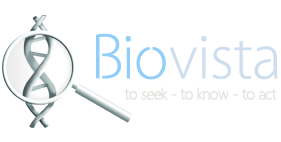
Andreas Persidis, CEO
Big Data Analytics is the new microscope.
Its existence is being predicated on the following syllogism:
- there is too much data being generated, a trend set to increase for the foreseeable future
- data is the new oil and so we need tools to extract (or indeed generate), process and add value to it
- the human brain is incapable of identifying patterns at such a fine grain of resolution. Big Data Analytics can identify patterns for humans to assess and act on.
Nowhere is this justification more relevant than in the case of healthcare. It’s not that other industries do not stand to benefit from Big Data Analytics. In the life sciences however we need all the help we can get:
To date we have been developing therapies despite many gaps in our knowledge:
- our understanding of biological processes and their interrelationships is only approximate
- our understanding of how a disease modifies the healthy state of an organism is only approximate
- our understanding of how a medicine works in our bodies is only approximate
And so, to our credit, despite working in an environment of “approximate raised to the power of 3”, we still manage to treat patients. The down side is that 21%-47% of what is spent in healthcare in the US is wasted “on things of no value” as Martin Kohn recently told the audience at WIRED Health 2015 in London.
But there is another reason why finding non-obvious and hidden correlations is useful in the life sciences and this is simply the amazing cross connectivity of biological systems, a glimpse of which we are only just beginning to catch. Big Data Analytics promises to help us understand this cross connectivity.
But not all is rosy. Real life data is incomplete and “dirty” and we need to deal with this. Then we need to understand which data to use – electronic health records? claims records? data from mobile apps? all? – and what insights each data set can give. Then there is the question of who gets access, and much more.
Still we definitely need to pursue this avenue since the “old way” for developing therapies and offering healthcare does not seem to be sustainable for much longer.
Like systematic drug repurposing, big data analytics recognizes that there is value in “knowing what we know”. Both can lead to innovation and both can play a significant role in shaping the healthcare environment of the future.

